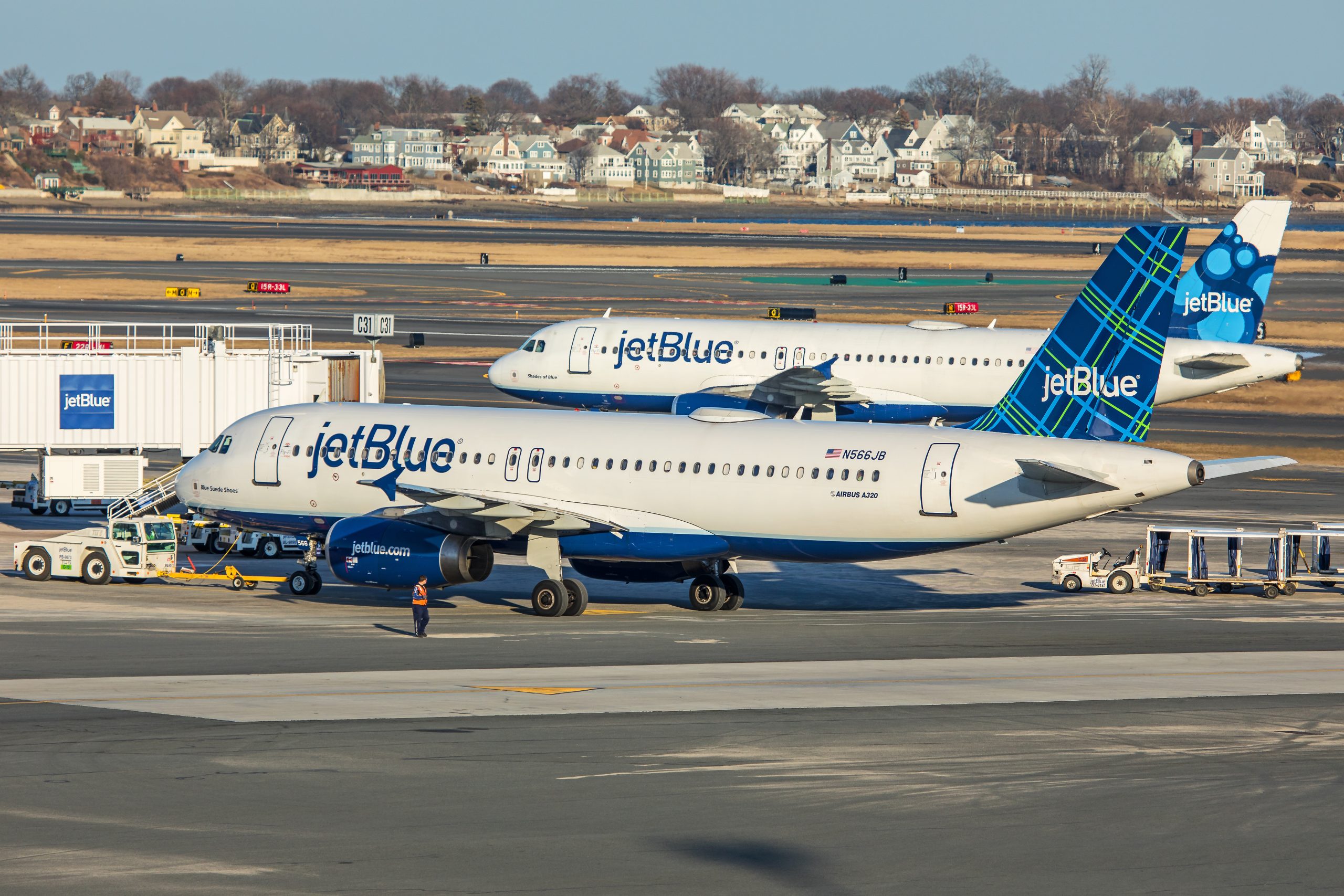
Hawaiian Slated to Return Grounded A321neos to Service
Hawaiian Airlines says it expects to return all 18 of its Airbus A321neo aircraft to revenue service in the coming…

An American Airlines jet landing on runway 18R with the fast-growing Austin skyline in the background. (Photo: AirlineGeeks | Mateen Kontoravdis)
The so-called “Toulouse Declaration” promoted by the French Presidency of the Council of the European Union on Feb. 4 was the first initiative between the public and private aviation sectors to achieve zero CO2 emissions by 2050. This agreement involved many European airports and airport associations agreeing on the need to decarbonize and radically transform the European aviation industry. Seventy-seven airport operators have expressed their support for the Toulouse Declaration.
The declaration was signed by 42 states, including the 27 EU member countries, Canada, the United States and the United Kingdom. It was adopted by 146 aviation industry stakeholder groups that attended the event, including the five major European aviation associations. These associations were represented through “Destination 2050,” the European aviation industry’s flagship sustainability initiative, based on the Paris Agreement and the European Green Deal.
ICAO President Salvatore Sciacchitano said that the targets set with this declaration are a testimony of the strong commitment to continue working in the right direction, stressing that the focus must be global and long-term. He also stressed the particular importance of sustainable aviation fuel (SAF). The world’s first passenger flight operated with 100% SAF at one of the engines was operated by United Airlines with a 737 MAX 8 from Chicago’s O’Hare International Airport to Washington’s Reagan National Airport with 115 people on board on Dec. 1, 2021. Boeing had already committed to enabling all the aircraft being manufactured at its facilities to fly on 100% Sustainable Aviation Fuel by 2030.
The recognition of the essential role of aviation in ensuring and improving regional and global multimodal connectivity for Europe and the rest of the world is one of the essential points of the declaration. Aviation emerges as the engine of socio-economic development and cohesion between peoples and the need for immediate and appropriate action to support and incentivize the decarbonization of aviation is recognized, particularly in light of the EU’s climate commitments for 2030 and 2050.
With this declaration, public and private aviation stakeholders affirmed that to achieve net-zero carbon emissions by 2050, they are committed to supporting improvements in aircraft technology, operations, and the use of sustainable aviation fuels. Airport operators commit to recognizing the social dimension of the green transition to sustainable aviation and the importance of adequate social dialogue as well as retraining and upgrading workers’ skills.
Finally, all signatories have committed to inviting other countries and international organizations to join this declaration to develop this project together towards the total aviation decarbonization at the global level.
Vincenzo graduated in 2019 in Mechanical Engineering with an aeronautical curriculum, focusing his thesis on Human Factors in aircraft maintenance. In 2022 he pursued his master's degree in Aerospace Engineering at the University of Palermo, Italy. He combines his journalistic activities with his work as a Reliability Engineer at Zetalab.
Receive a daily dose of the airline industry's top stories along with market insights right in your inbox.

Hawaiian Airlines says it expects to return all 18 of its Airbus A321neo aircraft to revenue service in the coming…

On Tuesday, JetBlue announced that it has adjusted its annual revenue forecast. The carrier announced that its revenue will be…

Royal Air Maroc and Safran have deepened their collaboration in aircraft engine maintenance. In celebration of its 25th anniversary, Safran…



